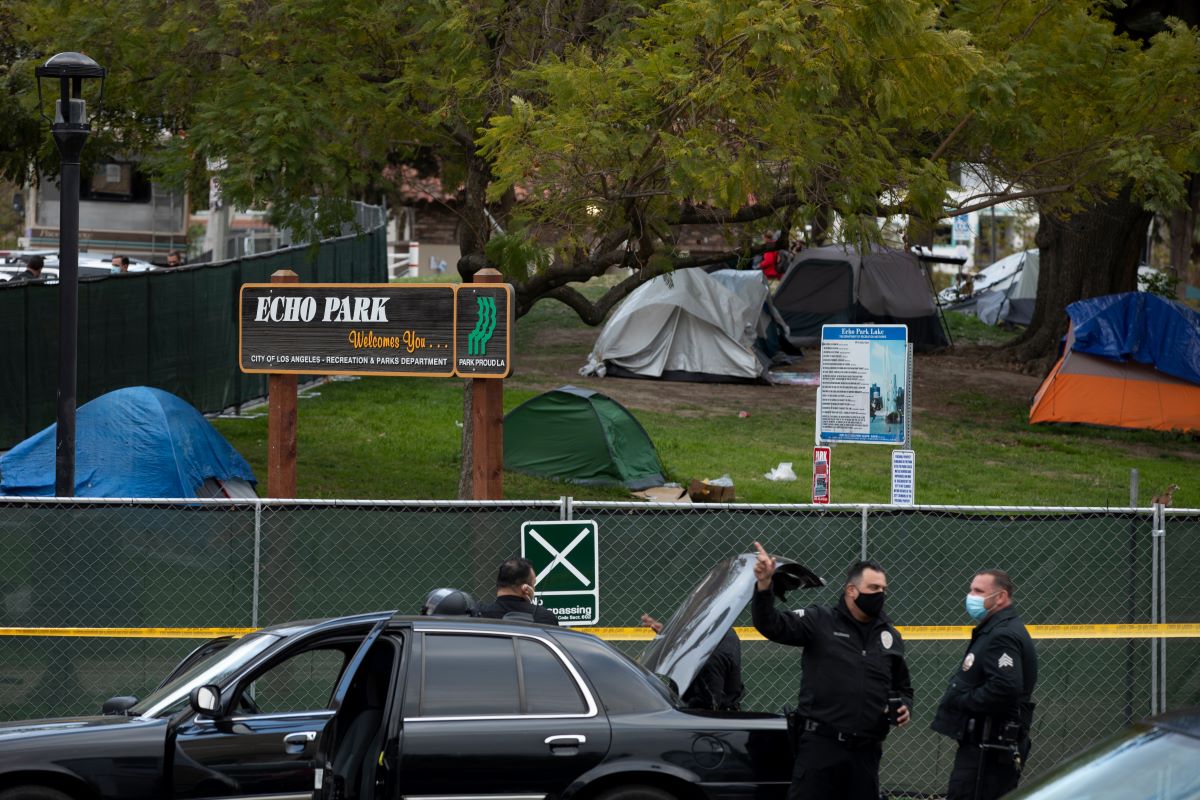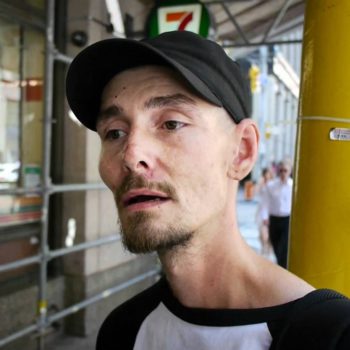Picture this: Your representatives vote to enforce an anti-camping law or to draft a new law that makes public camping, loitering, or panhandling a misdemeanor, maybe even a felony offense. Your attitude toward this is aloof. Perhaps you’re not even aware that this is happening.
Many people who don’t know what anti-homeless legislation is think these kinds of laws are quirky, wacky, or, at the very least, inconsequential.
Housed people might snicker at the thought of legislation prohibiting changing clothes in a public restroom or using your car as a picnic facility, both of which are on the books in Delaware. Some may wrongly believe these laws were miswritten as a strange joke amongst politicians. The truth, however, is far more sinister.
These laws intentionally target members of the homeless community and vilify their most mundane actions, which causes them to have more interactions with law enforcement officials and increases the probability that they will lose their belongings due to an arrest, citation, or encampment sweep.
These seemingly benign laws are doing a lot of damage by putting the lives of both homeless people and law enforcement officials on the line, not to mention draining an excessive amount of taxpayer dollars to support a so-called solution that only further increases the state of homelessness.
Anti-Homeless Legislation Criminalizes Survival for Members of the Unhoused Community
Laws that criminalize publicly engaging in life-sustaining activities often have deadly consequences. They target one of the most vulnerable populations, too.
To be specific, these laws target homeless people. They encourage law enforcement officials to issue citations or make arrests whenever they witness homeless people doing one or more of the following activities in public:
- Sitting
- Standing
- Storing belongings
- Pitching tents
- Talking to pedestrians
- Walking from one place to another
- Resting
- Eating and more
As you can see, all of the above-listed activities are necessary for survival. However, when members of the homeless population undertake such actions in public, they are subject to arrests.
Fearing arrest often deters members of the homeless population from doing the things they need to do to survive. This makes them more likely to die from exhaustion, dehydration, or extreme heat.
Indeed, unhoused individuals are 16 times more likely to die suddenly than their housed peers. Many of these deaths are the result of homeless encampment sweeps, which, incidentally, can only take place because anti-homeless legislation exists. At least 20 homeless people die each day. Isn’t it about time we took laws that criminalize homelessness off the books?
Involuntary Displacement: Staggering Examples of Death by Sweep
In a previous article, we touched on the death of a homeless man named Joe Reyes who, after being evicted, lost his life-saving medication during a sweep and subsequently died. Things like this happen all the time, but they are rarely documented.
When a homeless person dies from a treatable disease like diabetes, which is quite common given the disparities in healthcare, they likely lost their medication in a sweep.
Another way involuntary displacement can cause death is through the loss of vital documents like photo license IDs or health insurance cards. This makes it impossible for encampment residents to go to the doctor regularly. This, in turn, leads to life-threatening diseases like breast cancer and heart disease being diagnosed at more advanced stages when there is effectively nothing more doctors can do to save lives.
Public Health Experts Agree: Sweeping Encampments is a Practice that Should be Condemned
We caught up with the National Homelessness Law Center’s legal director, Eric Tars, who offered his perspective on the issue with the following quote.
“The criminalization of homelessness and the use of sweeps as a form of ‘dealing with encampments’ has been documented through individual incidents like the one you mentioned in the case of Joe Reyes,” Tars said. “It is also well-documented in evidence-based studies and has been shown to increase both morbidity and mortality amongst evicted encampment residents.”
Indeed, the Journal of the American Medical Association published a simulation modeling study of 23 US cities that concluded that involuntary displacement (which is the result and goal of anti-homeless legislation) leads to substantial increases in all of the following:
- Life-threatening infections
- Emergency hospitalizations
- Overdose deaths, just to name a few
“Elected officials and others who are claiming that sweeps of encampments are part of upholding public health say that the conditions in encampments are harming public health,” Tars continued. “Herein, they use a half-truth to create a false equivalency. They’re right that encampments harm public health, but they create this false binary when they say that the only alternative is, therefore, to sweep the encampment without providing any alternative housing, without doing any outreach.”
“Forcing people to move their belongings so that they no longer have access to their medication or identification or other necessary items for their survival is another way that anti-homeless legislation harms communities,” he said. “That’s why the American Public Health Association and the American Medical Association both condemn criminalization and sweeps of homeless encampments. So, if we are truly concerned about public health, we would look to those public health experts and follow their guidance on how to approach these matters, which is through housing and services.”
Talk to Your Local Legislators About Promoting Public Health by Prioritizing Laws that Make Housing a Human Right
Anti-homeless legislation doesn’t just restrict people’s freedoms or burden them with hefty fines. It also leads to a loss of life and is a contributing factor in the recent increase in homeless death rates.
At least 20 homeless people die each day. Isn’t it about time we took laws that criminalize homelessness off the books and replaced them with laws that make housing a human right? Talk to your legislators about saving lives by redirecting their focus, honing in on homelessness reduction and prevention, and phasing out the dated and dehumanizing process of criminalization.













